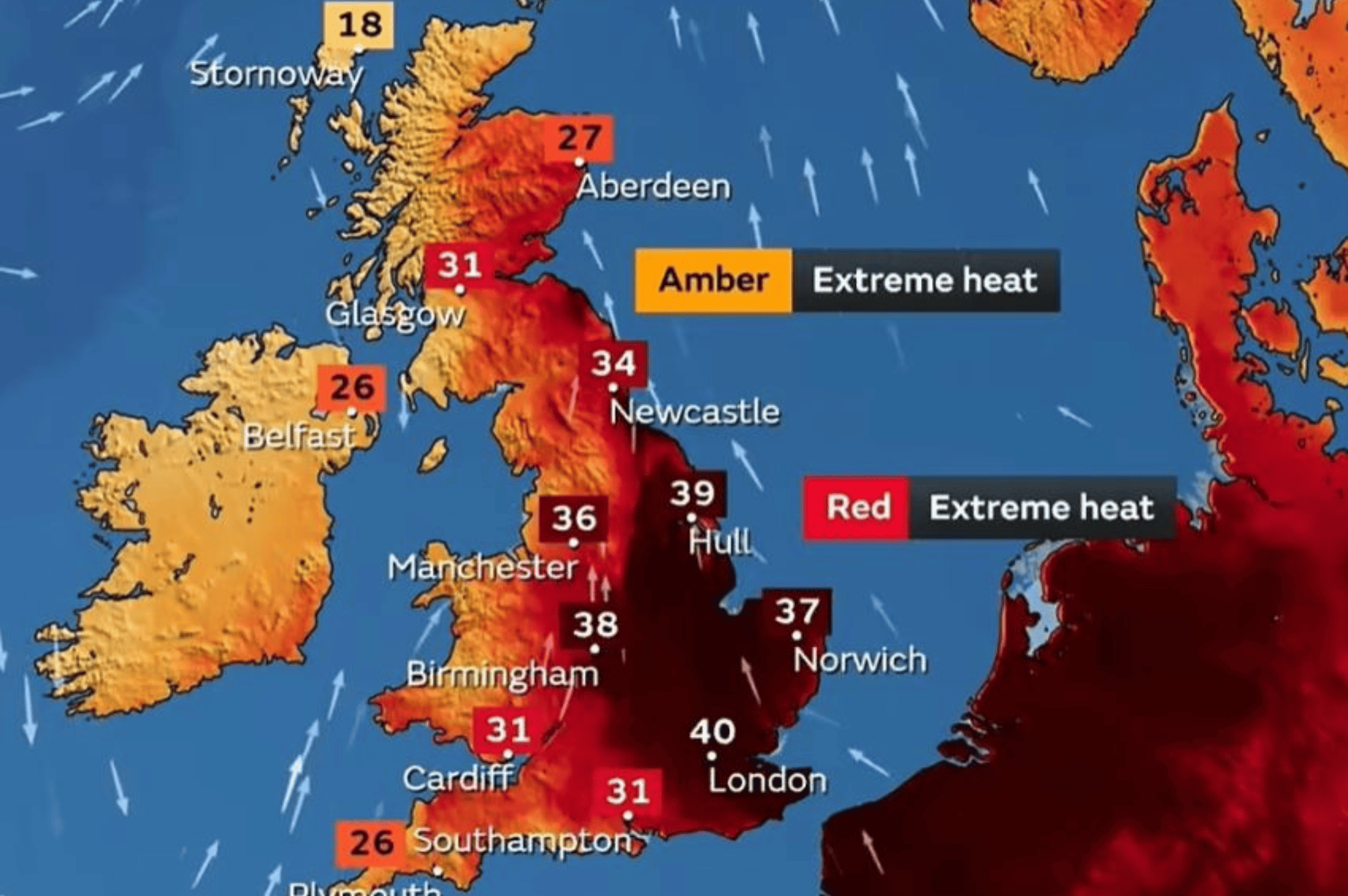With the extreme UK weather dominating the headlines, temperatures expected to reach a record 41C today and hotter summers predicted to become more frequent, experts continue to ask questions about the long-term effects of climate change on our infrastructure and lifestyles. In an article for The Guardian, experts put forward the case for making the UK’s housing stock resilient to rising heat levels, including the retrofitting of older properties. Jonathan Jenkin, Consultant at Planning & Design Practice looks at some of the options for keeping our homes cool as temperatures rise.
Climate change requires us to adapt and to make our infrastructure, our environment and our homes more robust. In the UK climate change will not only lead to an increase in summertime temperatures, and both drought and flooding but it could also lead to far colder winter events caused by the collapse of the Atlantic conveyor which brings warm water and a milder climate to the UK.
For housing this means higher levels of insulation and better ventilation. With higher insulation our homes will be warmer in the winter and cooler in summer. If heat does come in in summer, better ventilation with passive chimneys taking heat out of the building and pulling in colder air from the ground through a building will help. We will need to consider external blinds which are very popular in northern and southern Europe. We also may need to consider solar power to drive air source heat pumps to keep us cool in summer and warm in winter. With the cost of energy rising, we need to use far less, or generate our own. Solar provides electricity without carbon (other than in its production) and with wider temperature fluctuations we must avoid an increase in carbon-based energy use.
We need to learn from those who live in hot countries, build our bedrooms into the ground where the temperature is constant as they do in places like Sardinia. We need to be able to move water from one part of the country to another so that water can be taken to where it is needed. Northumbria water being used in London and the south-east. Moving water around will help the environment and will support biodiversity reducing local pressure for ground water extraction in the south-east which has blighted the chalk streams and led to subsidence around London. The major oil and gas companies should become energy companies that build solar, wind and nuclear. They can afford to and it’s in their long-term interests to do so.
There will be no large-scale BP or Shell in 2050.There are so many opportunities to make the UK more robust in the face of climate change and meet our carbon reduction targets and biodiversity goals. It can be a win-win situation, but it needs concerted action by government and by us all and not the current foot dragging half-hearted approach we have today.
Jonathan Jenkin, BA (Hons) BTP MRTPI, Consultant, Planning & Design Practice
Main Image: ©Met Office



